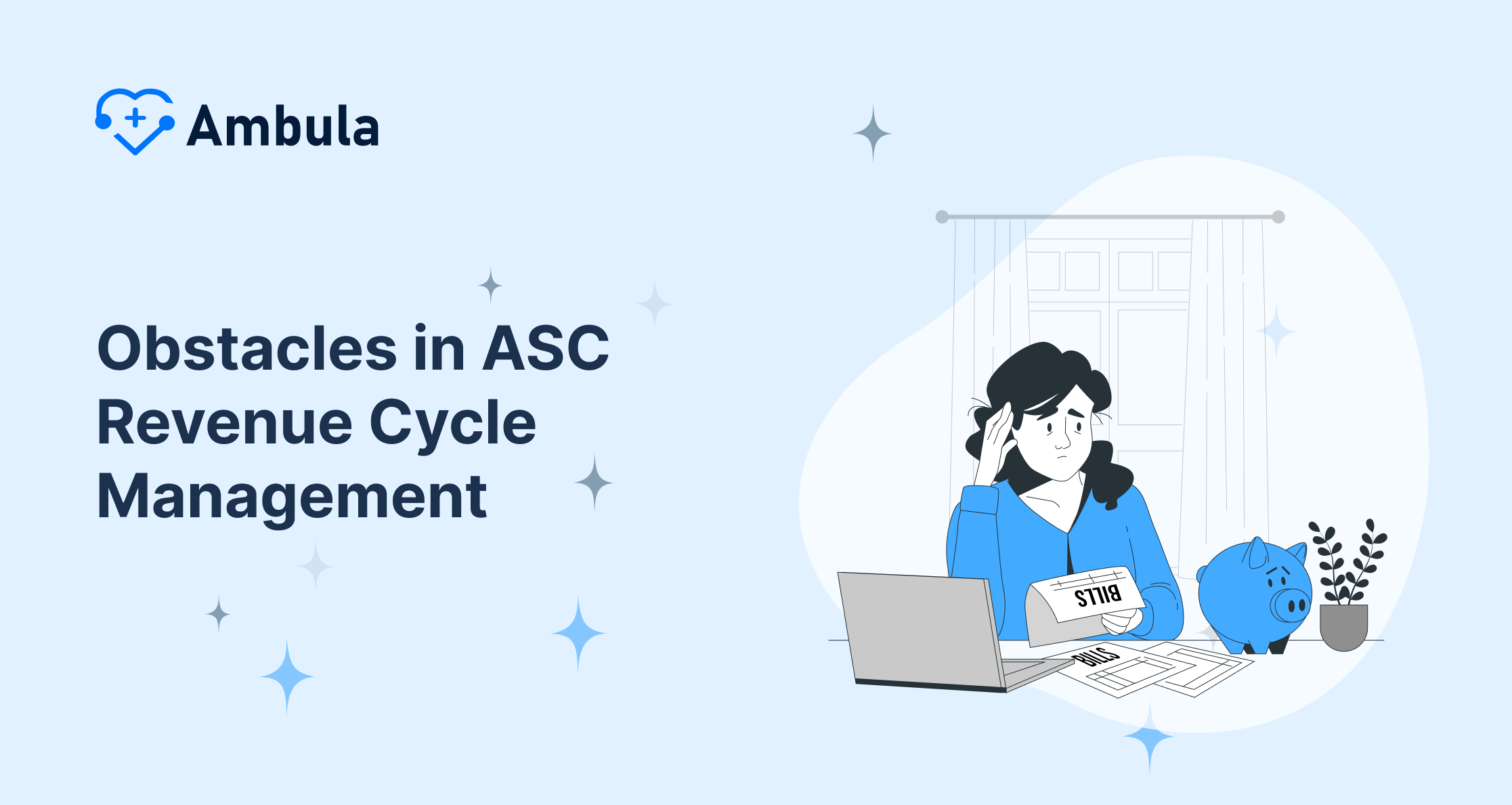Ambulatory Surgery Centers (ASCs) are pivotal for delivering specialized surgical care. These centers offer a streamlined, cost-effective alternative to traditional hospitals but face unique challenges, particularly in managing their revenue cycles effectively. Revenue Cycle Management (RCM) in ASCs is a complex, integral process that ensures financial viability by encompassing every aspect, from patient entry to final payment collection. Understanding and optimizing these processes enhances operational efficiencies and improves patient satisfaction and compliance with regulatory standards.
Understanding the Fundamentals of ASC Revenue Cycle Management
Revenue Cycle Management (RCM) refers to the financial process utilizing medical billing software and healthcare processes to track patient care episodes from registration and appointment scheduling to the final balance payment. In ASCs, this involves distinct stages such as patient registration, insurance verification, patient care and treatment documentation, coding and billing, claim submission, denial management, and payment processing. Each stage must be meticulously managed to ensure the center captures all revenue due for the services provided.
Comparison with Traditional Hospitals
Unlike traditional hospitals, ASCs generally deal with elective surgeries and procedures that may not involve extended stays. This model allows for a more predictable and streamlined billing and payment cycle. Yet, precision in scheduling, coding, and claims management is required to avoid delays and denials directly impacting the bottom line. The revenue cycle in a traditional hospital setting is often more complex due to various treatments and services, leading to longer and more complicated billing processes.
Key Components of Effective RCM in ASCs
The first step in a robust RCM process involves accurate patient registration. This stage is crucial as errors in patient data can lead to claim rejections or denials later in the cycle. Collecting comprehensive and precise information, including personal details, insurance data, and medical history, forms the foundation for successful billing and reimbursement.
Billing and Coding
For ASCs, using the correct procedure and diagnosis codes is essential for accurate billing and minimizing claim denials. Specialized surgical codes differ significantly from those used in broader hospital settings, requiring coders in ASCs to be highly knowledgeable and up-to-date with coding standards specific to outpatient surgical care.
Claims Submission and Management
Once the procedures are correctly coded, claims must be prepared and submitted to payers. Efficient claims management ensures that submissions are timely, accurate, and compliant with payer policies. It also involves meticulous follow-up to promptly address any denials or requests for additional information.
Payment Processing
The final step in the RCM process is payment processing, which involves posting and reconciling payments received from payers and patients. Ensuring that payments are processed swiftly and accurately directly affects an ASC’s cash flow and overall financial health.
Monitoring KPIs
Monitoring KPIs is essential for managing and optimizing the revenue cycle in ASCs. Here are several KPIs that centers should focus on:
- Cash Collections as a Percentage of Net Revenue: This KPI measures how effectively an ASC collects payments. A high percentage here indicates strong revenue collection efficiency relative to the billing. Monitoring this ratio helps ASCs understand their effectiveness in revenue collection activities.Learn more about revenue cycle KPIs
- Days to Bill: This indicator measures the time taken to generate a bill after conducting surgery. Quicker billing processes can lead to faster revenue collections, improving cash flow and reducing the time money is tied up in receivables.
- Denial Rates: This represents the percentage of claims that insurers deny. Lower denial rates are preferable, as they indicate that a higher proportion of submitted claims are reimbursed. Although industry averages can be elusive, tracking this metric is crucial for any ASC to assess and improve its billing practices.
Challenges in ASC Revenue Cycle Management
Efficient revenue cycle management in ASCs faces several notable challenges that can impact the financial health of these centers:
- High Costs: Operational costs in ASCs can sometimes grow faster than revenue, making efficient revenue cycle management critical. As the healthcare market evolves, keeping operational expenses under control while maximizing revenue intake is more crucial than ever. This balancing act highlights the importance of an optimized RCM process to ensure sustainability and growth.
- Complexities in Billing Processes: ASC billing is inherently complex, involving multiple steps and parties. This complexity makes the process susceptible to errors and delays, significantly impacting the revenue cycle. While specific statistics on error rates are hard to pinpoint, the industry widely acknowledges these challenges, emphasizing the need for streamlined and accurate billing procedures.
Integrating Technology into ASC RCM
Integrating advanced RCM software solutions in ASCs can dramatically improve the efficiency and accuracy of the revenue cycle processes. Modern RCM systems offer automation of routine tasks, detailed reporting capabilities, and real-time analytics to monitor and enhance financial performance.
This excerpt lays a solid foundation for the article, covering the introduction and the first few sections in detail. Continuing in this manner, the article would next delve into enhancing patient experience through RCM, which includes improving communication strategies and patient engagement. Following that, advanced strategies, best practices, and the selection of RCM partners will be discussed in detail to complete the comprehensive guide.
The goal of optimized revenue cycle management should be to create a seamless, transparent, and efficient billing experience that supports not just the financial goals of ASCs but also contributes to the overall well-being of the patients they serve. As the healthcare industry continues to evolve, those centers that master the art of effective revenue cycle management will be best positioned to thrive in an increasingly competitive market.
Additional Resources
For administrators and financial managers looking to deepen their understanding of ASC revenue cycle management, the following resources are invaluable:
- Serbin Medical Billing’s overview of 20 ASC RCM KPIs: Offers detailed insights into which metrics are most crucial for tracking the financial health of ASCs.
- Surgical Information Systems’ Guide to RCM for surgery centers: Provides a general yet comprehensive guide on the various aspects of RCM tailored to the needs of surgery centers.
By integrating these challenges, KPIs, and resources into the revenue cycle management strategy, ASCs can not only anticipate potential pitfalls but also enhance their operational efficiency and financial stability.







